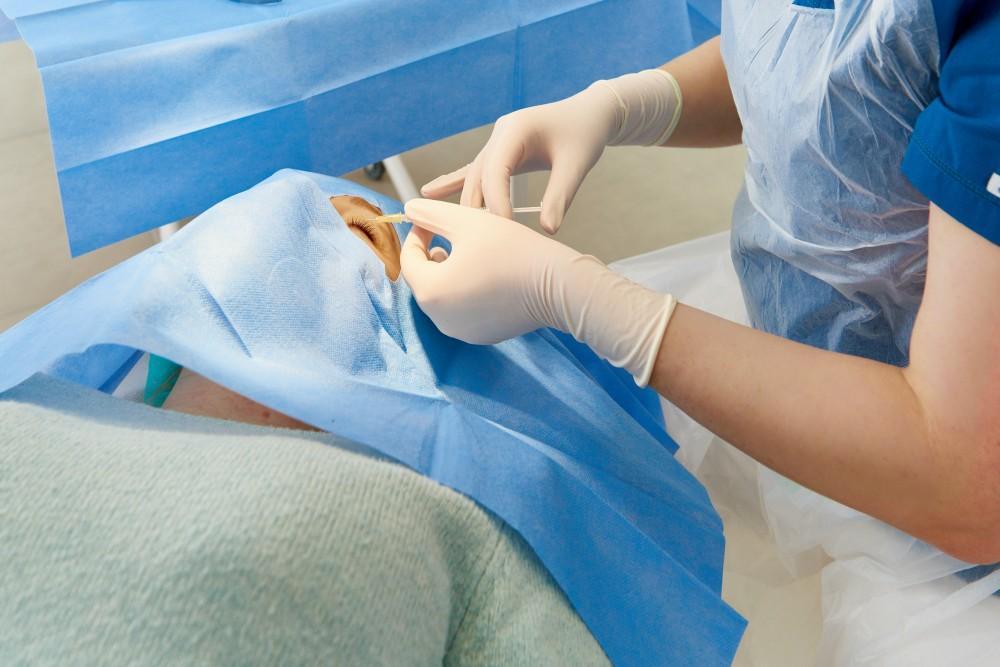
Why PRP Laser Therapy Might Be Right for You

Diabetes prevents the proper conversion of glucose (sugar) into energy within the body’s cells. It can occur because your pancreas doesn’t produce enough of the hormone insulin or because your cells stop responding to insulin’s effects. In both cases, blood glucose levels remain high, which can lead to a variety of health problems, including problems with your eyes.
At Retina Specialists, our expert team of retinal ophthalmologists understands the problems diabetes can cause to your eye health. That’s why they stress the importance of regular eye exams, so you can prevent diabetic eye conditions from occurring, including preventing vision loss from diabetic retinopathy, a condition that damages the eye’s blood vessels. If you develop retinopathy, our specialists may recommend PRP laser therapy. Here’s how it can help.
What is diabetic retinopathy?
Diabetic retinopathy is a leading cause of blindness among diabetics, affecting one in three American adults over 40 who have the condition. There are two stages.
Nonproliferative diabetic retinopathy is the first stage of the condition. Blood vessels weaken from the high sugar levels and leak blood into the retina, the structure at the back of your eye that takes the light you see and sends the information to the brain for processing. The blood can cause the retina to swell, impairing function. The macula is the central 2% of the retinal tissue that registers your clear, central vision; if it swells, it’s termed macular edema.
This stage of retinopathy generally causes blurry vision from the swollen tissue. If it’s not treated, and if the diabetes isn’t controlled, it can progress to the next stage, called proliferative diabetic retinopathy.
In the second stage, blood vessels seal themselves off, preventing oxygen and nutrient delivery to the macula and resulting in new vessel growth on the retina’s surface. These vessels aren’t normal, and they’re highly delicate, often leaking blood into the vitreous humor, a fluid-filled space around the retina.
Small amounts of leakage cause relatively innocuous symptoms like visual floaters, but significant leakage can destroy your ability to see. The abnormal blood vessels may also trigger scar tissue growth, leading to macula edema or a potentially detached retina.
What is PRP laser therapy?
Panretinal photocoagulation (PRP) laser therapy is an innovative treatment for diabetic retinopathy, macular edema, and open-angle glaucoma, a condition where fluid pressure builds up in the eye, leading to vision loss.
At Retina Specialists, we offer two ways of administering PRP — focal coagulation and scatter coagulation — to address your particular needs.
Focal coagulation targets any abnormal blood vessels already present in your eyes, either on the retina or in the system that drains excess fluid. The laser heats these abnormal vessels, causing them to drain, seal, and disappear.
Scatter coagulation targets a larger portion of your retina, creating tiny lesions that prevent any new blood vessels from forming.
It’s important to understand that this treatment can’t restore any vision that’s already been lost due to disease. The goal is to prevent painful fluid buildup and ensure no further vision is lost.
The PRP laser therapy procedure
At Retina Specialists, PRP laser therapy is an outpatient procedure performed in our office. When you come in for your appointment, we administer eye drops that both dilate your pupils (so we can see the internal structures) and numb your eyes. Then we place eyelid holders over your eyes so they remain open and still during your treatment.
The treatment itself takes 15-30 minutes and is completely painless, but you can expect to be in the office from 2-4 hours. Most people need a series of laser treatments for optimal results.
You’ll need a friend or family member to drive you home, though, because the pupil dilation and PRP laser therapy will both make your vision blurry for several hours.
Your job for the rest of the day is to rest and avoid rubbing your eyes. You should be able to see clearly after a good night’s sleep.
If you’re a diabetic, your eyes are at risk for retinopathy and edema, which both can cause vision loss. To learn more about how PRP laser therapy can help your condition and prevent new problems for developing, call any of Retina Specialists’ five Texas offices — in Dallas, DeSoto, Plano, Mesquite, and Waxahachie — to schedule a consultation with one of our specialists, or book online today.
You Might Also Enjoy...


How Aging Impacts Retinal Health

Vitrectomy: The Outpatient Surgery That Can Save Your Vision

When to Seek Treatment for Eye Trauma

What Happens During a Diabetic Eye Exam?


